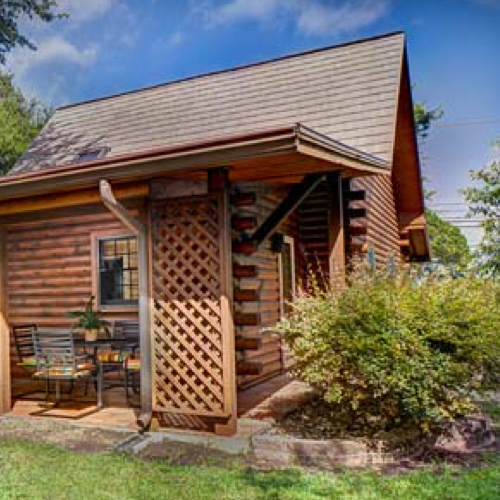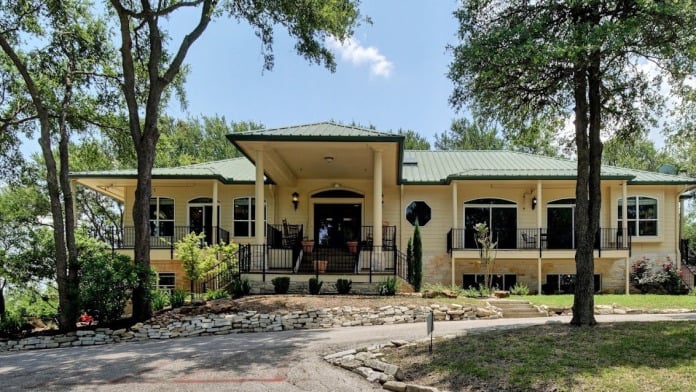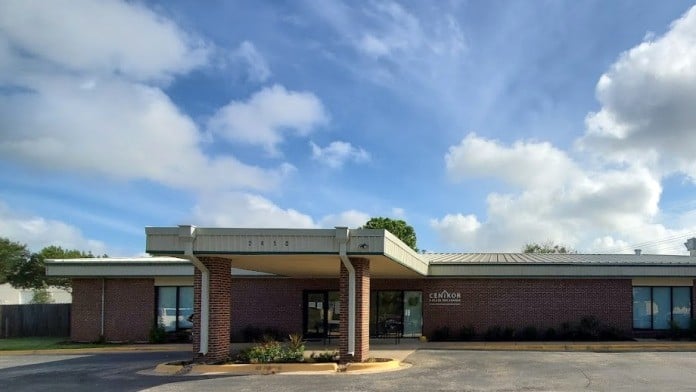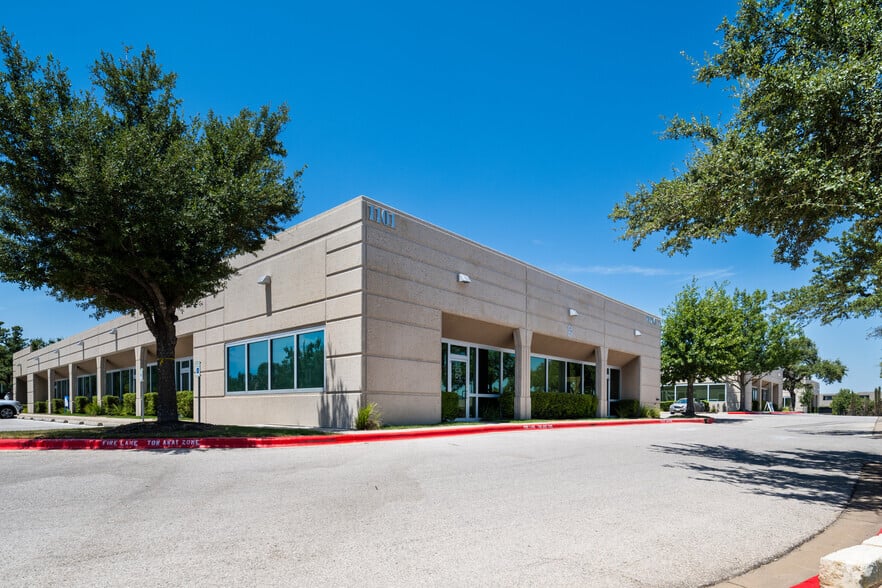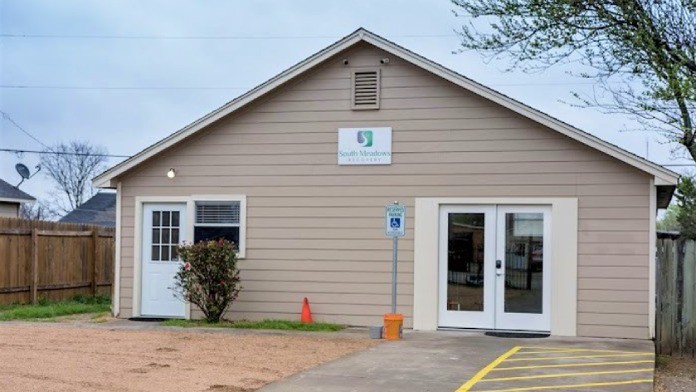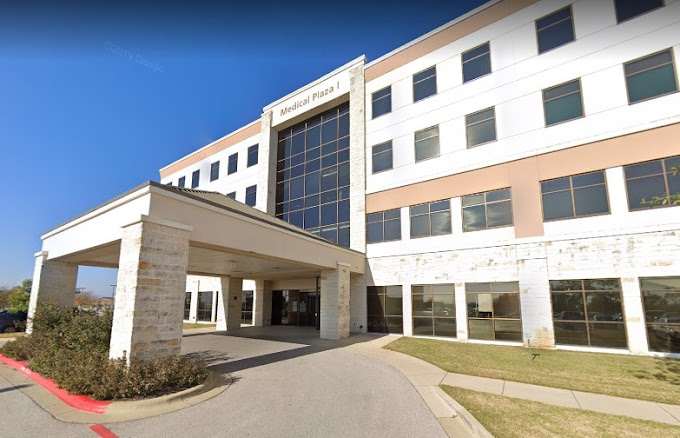My daughter was a patient at the Arbor. While my daughter was there we both treated with the highest level of professionalism and respect. I thought this was very important because addiction is a family affair. After 90 days she was accepted into the continuum of care house ...
About The Arbor Behavioral Healthcare
Treatment includes many aspects of any good substance abuse program but also has some special programs that aren’t available everywhere. The main two are equine therapy and art therapy programs. Nutritional training, exercise, yoga and mindfulness meditation are used to help clients get in touch with themselves and focus on healing the body and soul.
In terms of counseling, traditional individual, group, and family therapy are used in combination with the other creative and expressive therapies used. Cognitive behavioral therapy (CBT) and 12 Step peer support programs are used to help give individuals the treatment, support and healing they need to be successful in recovery.
Length of stay in the residential program varies depending on the individual’s situation, treatment needs, and life responsibilities. Once a client completes residential treatment, they will either enter intensive outpatient or regular outpatient treatment. Some will be offered transitional housing to help them reintegrate into society and learn to live a sober life in a new, supportive environment rather than returning to the situation that led them to treatment in the first place.
The Arbor has really positive reviews online from clients and staff. They’re credited with saving lives, improving quality of life, and giving people a fresh start with compassionate and accepting staff who treated clients in professional and empathetic ways.
They accept most major insurance plans. Be sure to check with your personal health insurance provider to ensure you know exactly what is covered by insurance and if you will be financially responsible for any associated costs.
Latest Reviews
Rehab Score
Gallery

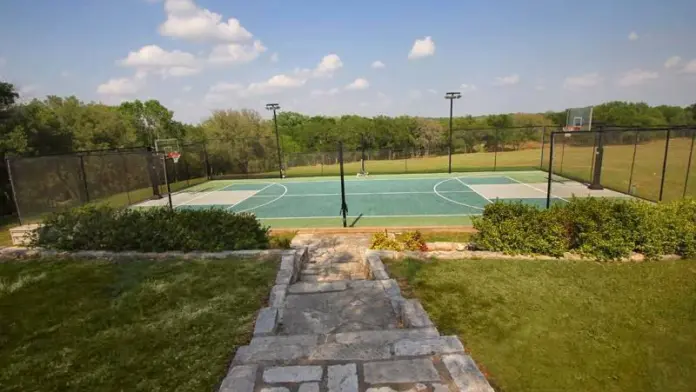
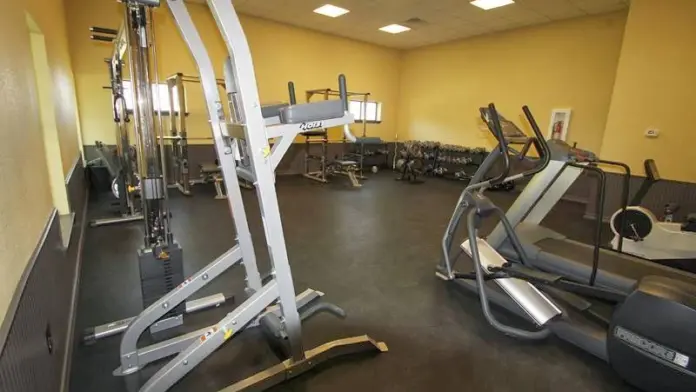

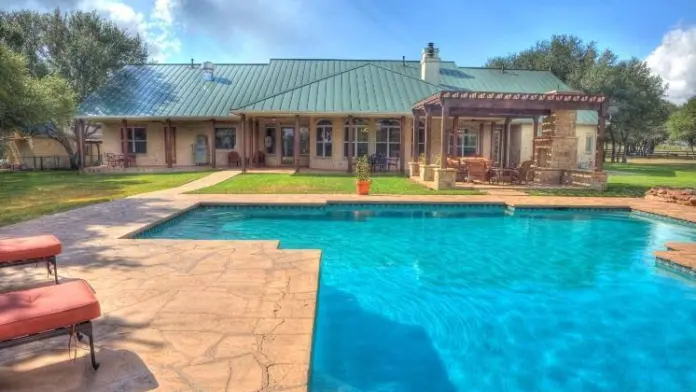

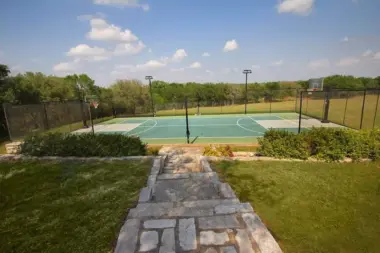
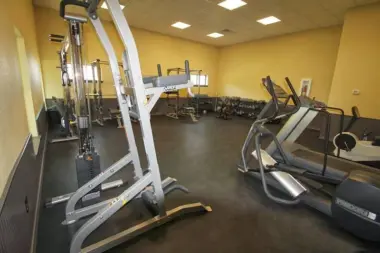

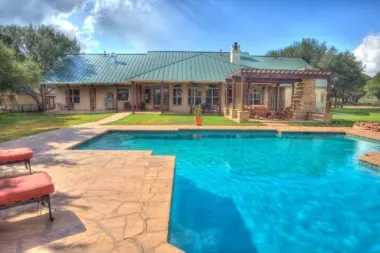
Accepted Insurance



Other Forms of Payment
Private insurance refers to any kind of healthcare coverage that isn't from the state or federal government. This includes individual and family plans offered by an employer or purchased from the Insurance Marketplace. Every plan will have different requirements and out of pocket costs so be sure to get the full details before you start treatment.
Self-pay involves paying for treatment out of your own pocket. You can use savings or credit, get a personal loan, or receive help from family and friends to fund your treatment. If you don't have insurance or your insurance plan doesn't cover a specific program, self-pay can help ensure you still get the care you need.
Addiction Treatments
Levels of Care
Arbor's Outpatient Treatment Program (formerly Compass Continuing Care) offers supportive care for those completing inpatient treatment, as well as those who are better suited for outpatient drug or alcohol treatment. Arbor Behavioral Health offers a variety of outpatient drug and alcohol treatment programs that support individuals as they progress on the path to long-term sobriety. The Arbor Supportive Outpatient Program generally serves as a step down program for those who complete an IOP, or for those already participating in several other resources for support, such as case management, sober living, and other therapy groups. We recommend IOP prior to enrolling in SOP, however we will conduct a thorough assessment to determine which program may best fit your particular needs.
The Arbor Inpatient Addiction Treatment Program offers the most intensive program in the Arbor Behavioral Healthcare Continuum of Care. Offering a highly personalized plan of care in a luxurious residential setting, their intent is to provide a comfortable environment away from the distractions of life where one can focus on his or her recovery. The landscape is serene with an urban ranch feel that provides a relaxing, down-to-earth setting. The Ranch is home to a number of cutting edge therapies including their innovative Equine Assisted Psychotherapy program. The Arbor offers wide range of treatment modalities providing an excellent beginning on the path to sobriety as well as physical and mental wellness.
The Arbor Intensive Outpatient Program is a structured substance abuse and mental health program designed to help clients overcome the personal issues and barriers to sobriety while allowing them to remain in their own home. Participants attend 3 evening group sessions and meet one-on-one with a counselor each week, offering the education, counseling, and support that one needs in early recovery. This allows you more independence and the ability to continue everyday activities, such as school, work, and parenting. The program is led by licensed addiction professionals, provides 10 clinical hours per week, and integrates evidence-based practices, 12-step concepts, and experiential modalities for an approach that treats the whole person.
Rehab aftercare programs are based on a model of continuing care and the premise that recovery is a life-long process requiring ongoing client support. Many rehab aftercare services include outpatient care, but clients often continue to receive support after being discharged from formal treatment. Case managers and care teams typically collaborate with clients to design their long-term care plan, which may include peer coaching, career counseling, and 12 step program induction, among other services.
All of the treatment programs at Arbor Behavioral Healthcare center around the 12-Step Approach to addiction recovery. 12-Step Recovery has been proven successful for more than 80 years. The 12-Step approach began in the 1930s with Alcoholics Anonymous. Over the years, this approach has proven successful for many different addictive behaviors. So much so the steps are often referred to as the “12 steps to freedom” from addiction.
Arbor Sober Living (formerly Hope Harbor Sober Living) offers those new to recovery a safe and supportive place to live. Research done by the National Institute of Health has found that individuals who live in a sober living home have better long term outcomes than those of people who don’t have access to an environment that supports sustained recovery. Their admissions screening process and commitment to providing a Continuum of Care ensures that their residents are serious about the remaining on the path to recovery. Arbor Sober Living is open to those who have completed a primary treatment program and at least 30 days of sobriety. The Residents of their sober living homes ease into a healthy lifestyle while experiencing real life responsibilities, social norms, and gaining valuable work and living skills. At the same time, life in sober living keeps distractions to a minimum, ensuring that residents stay focused on their path towards sober, independent living. Participants reinforce the lessons and habits learned in treatment. Friendships are formed, creating a personal support network of others supporting each other’s sobriety.
Treatments
The goal of treatment for alcoholism is abstinence. Those with poor social support, poor motivation, or psychiatric disorders tend to relapse within a few years of treatment. For these people, success is measured by longer periods of abstinence, reduced use of alcohol, better health, and improved social functioning. Recovery and Maintenance are usually based on 12 step programs and AA meetings.
During rehab in Texas, you'll deal with underlying issues that contribute to addiction. By addressing these challenges and learning healthy ways to cope with them, you'll develop strategies that help you live a drug-free lifestyle.
It is common for those suffering from addiction to also have other mental disorders. These individuals suffer from a dual diagnosis. In many cases, individuals have been abusing alcohol, drugs or both in order to medicate the symptoms of other co-occurring disorders. They utilize several strategies to treat clients with co-occurring disorders including pharmacotherapies, mindfulness meditation, nutrition, exercise, yoga, equine therapy (Natural Lifemanship), EMDR, Cognitive-Behavioral, and 12-step recovery.
A combined mental health and substance abuse rehab has the staff and resources available to handle individuals with both mental health and substance abuse issues. It can be challenging to determine where a specific symptom stems from (a mental health issue or an issue related to substance abuse), so mental health and substance abuse professionals are helpful in detangling symptoms and keeping treatment on track.
Opioid rehabs specialize in supporting those recovering from opioid addiction. They treat those suffering from addiction to illegal opioids like heroin, as well as prescription drugs like oxycodone. These centers typically combine both physical as well as mental and emotional support to help stop addiction. Physical support often includes medical detox and subsequent medical support (including medication), and mental support includes in-depth therapy to address the underlying causes of addiction.
Programs
Adult rehab programs include therapies tailored to each client's specific needs, goals, and recovery progress. They are tailored to the specific challenges adult clients may face, including family and work pressures and commitments. From inpatient and residential treatment to various levels of outpatient services, there are many options available. Some facilities also help adults work through co-occurring conditions, like anxiety, that can accompany addiction.
Young adulthood can be an exciting, yet difficult, time of transition. Individuals in their late teens to mid-20s face unique stressors related to school, jobs, families, and social circles, which can lead to a rise in substance use. Rehab centers with dedicated young adult programs will include activities and amenities that cater to this age group, with an emphasis on specialized counseling, peer socialization, and ongoing aftercare.
Clinical Services
Cognitive Behavioral Therapy (CBT) is a therapy modality that focuses on the relationship between one's thoughts, feelings, and behaviors. It is used to establish and allow for healthy responses to thoughts and feelings (instead of unhealthy responses, like using drugs or alcohol). CBT has been proven effective for recovering addicts of all kinds, and is used to strengthen a patient's own self-awareness and ability to self-regulate. CBT allows individuals to monitor their own emotional state, become more adept at communicating with others, and manage stress without needing to engage in substance abuse.
Treatment that takes a dialectical behavior therapy approach focuses on four strategies. Distress tolerance will help you accept and tolerate intense emotions. Emotional regulation will teach you to manage those emotions. Mindfulness will keep you in the present moment instead of regret or worry. Interpersonal effectiveness will teach you to manage your relationships.
Group therapy is any therapeutic work that happens in a group (not one-on-one). There are a number of different group therapy modalities, including support groups, experiential therapy, psycho-education, and more. Group therapy involves treatment as well as processing interaction between group members.
In individual therapy, a patient meets one-on-one with a trained psychologist or counselor. Therapy is a pivotal part of effective substance abuse treatment, as it often covers root causes of addiction, including challenges faced by the patient in their social, family, and work/school life.
Motivational Interviewing (MI) is a clinical approach to helping people with substance abuse issues and other conditions shift behavior in positive ways. It is more goal-oriented than traditional psychotherapy, as MI counselors directly attempt to get clients to consider making behavioral change (rather than wait for them to come to conclusions themselves). Its primary purpose is to resolve ambivalence and help clients become able to make healthy choices freely.
Trauma therapy addresses traumatic incidents from a client's past that are likely affecting their present-day experience. Trauma is often one of the primary triggers and potential causes of addiction, and can stem from child sexual abuse, domestic violence, having a parent with a mental illness, losing one or both parents at a young age, teenage or adult sexual assault, or any number of other factors. The purpose of trauma therapy is to allow a patient to process trauma and move through and past it, with the help of trained and compassionate mental health professionals.
Couples therapy helps couples learn to control emotions, trust each other, and communicate more effectively. It can be useful for short term intervention for a specific issue or for working on the relationship long term.
EMDR is a therapeutic modality originally developed to help process trauma. In an EMDR session, a patient is prompted to undergo eye movements that mimic those of REM sleep. This is accomplished by watching a therapist's finger move back and forth across, or following a bar of light. The goal is repetitive sets of eye movements that help the brain reprocess memory, which can significantly reduce the intensity of remembered traumatic incidents. Associated memories can heal simultaneously, leaving patients significantly calmer, more stable, and more emotionally relaxed.
The Arbor Family Program is designed to address the needs of the family of the alcoholic/drug addict as they navigate the path to sobriety and healthy living. It is not uncommon for there to be a complete breakdown of communication between the suffering addict and their family. Their family program helps bridge this gap and get the entire family moving towards a healthy direction. Their Family Program is a combination of educational and therapeutic modalities. It is a three and a half day intensive program offered monthly, and is ideal for family members, partners, and significant others affected by addiction. It is lead and directed by masters-level clinicians, and is an experiential program which includes equine assisted therapy, group interaction, individual sessions and other therapeutic activities.
Art therapy is exactly what it sounds like, using the arts to help people resolve inner conflicts, develop interpersonal skills, manage behavior, reduce stress, increase self-esteem and self-awareness, and achieve insight. Art therapy uses the visual arts and creative process to improve the psychological health, cognitive abilities, and sensory-motor functions for the individual. It is action-oriented and experience-based, allowing the individual to uncover feelings and thoughts that lead to addiction, as well as a way to deal with them safely. Thus art therapy is a beneficial part of the treatment plan. Art therapy allows the person look inside themselves and contemplate the nature and causes of their addiction. This helps in various ways. It may uncover why they suffer from addiction. More importantly, participation in the arts is a healthy outlet for dealing with the emotions that addiction stems from.
Research has shown that a regular fitness program doesn’t just benefit the body; it also paves the way for a healthier mind. Mental health, cognitive function, and even mood are all improved by incorporating an exercise routine. Long term sobriety is supported when the individual has both a healthy mind and a healthy body. Their clients participate in fitness instruction up to five times weekly. By the time they are ready to leave their program, they will have experienced the positive benefits of fitness in their daily lives. Additionally, their staff works with each client to continue to include regular exercise into their lives as part of their discharge and continuing care plan. Guests at The Arbor enjoy instructor-led fitness classes 3 times a week for weight training and 2 times per week for yoga. Available recreational activities include: basketball, volleyball, Meditation, Crossfit as well as runs or walks on their 67 acre, Texas Hill Country ranch.
Nicotine Replacement Therapy (NRT) is a way of getting nicotine into the bloodstream without smoking. It uses products that supply low doses of nicotine to help people stop smoking. The goal of therapy is to cut down on cravings for nicotine and ease the symptoms of nicotine withdrawal.
Amenities
-
Gym
-
Residential Setting
Staff & Accreditations
Staff

Justin Harvey
Founder & CEO

Jim Walker
Founder

Eloise DeJoria
Founder

Brian Samford, PhD, LMFT, LCDC
Chief of Program Development

Dan Ptak
Executive Director

Dan Zambrano, MA, LCDC
Clinical Director
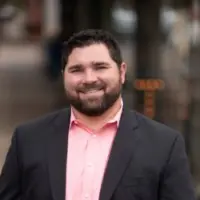
Zack Plyler
Admissions Director
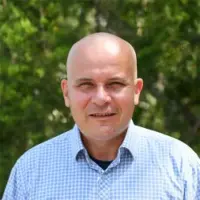
Eric Schneider, LCSW, LCDC
Intensive Outpatient Program Manager
Accreditations

The Commission on Accreditation of Rehabilitation Facilities (CARF) is a non-profit organization that specifically accredits rehab organizations. Founded in 1966, CARF's, mission is to help service providers like rehab facilities maintain high standards of care.
CARF Accreditation: Yes
Accreditation Number: 269203

State Licenses are permits issued by government agencies that allow rehab organizations to conduct business legally within a certain geographical area. Typically, the kind of program a rehab facility offers, along with its physical location, determines which licenses are required to operate legally.
State License: Texas
Contact Information
1443 County Road 103
Georgetown, TX 78626

